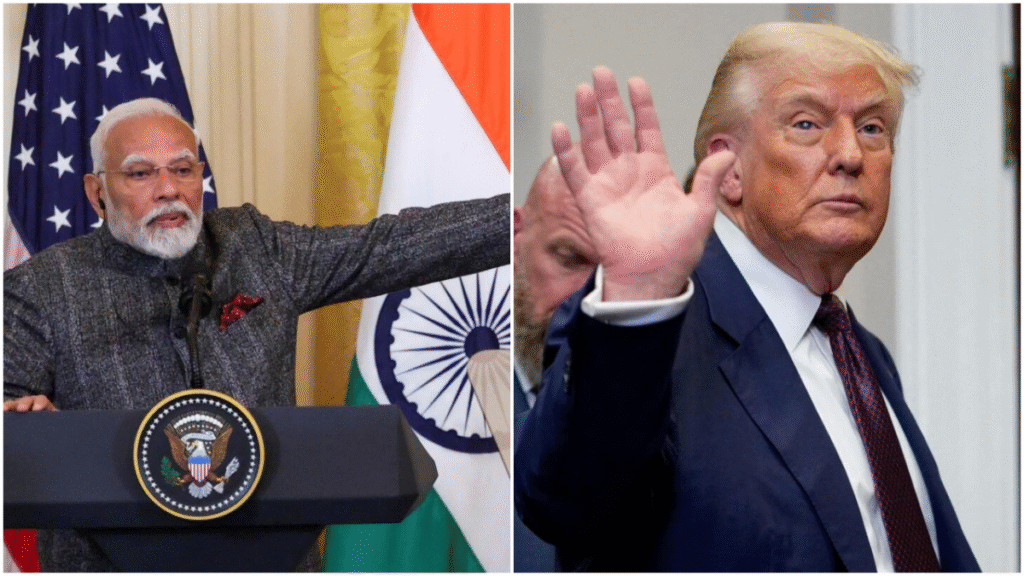
Summary – Trade tensions between the US and India escalate as hefty tariffs disrupt a key economic partnership, raising global economic and diplomatic concerns.,
Article –
The recent escalation of trade tensions between the United States and India has captured global attention, primarily due to the implementation of hefty US tariffs on Indian goods. This development threatens a key economic partnership and raises significant concerns regarding both global economic stability and diplomatic relations.
Background
The tension traces back to a series of tariffs imposed by the US on Indian imports, perceived as part of a broader protectionist agenda. These tariffs target various Indian products, including textiles and steel, intending to reduce the US trade deficit and protect its domestic industries. This policy has drawn criticism from former White House officials and analysts alike, highlighting its economic and diplomatic repercussions.
The Global Impact
India’s role as one of the world’s fastest-growing economies makes this conflict especially consequential. The tariffs threaten to disrupt bilateral trade ranked over $100 billion annually. Key impacts include:
- Higher costs and uncertainty for multinational companies.
- Complications in global supply chains and investment strategies.
- Potential strain on US-India geopolitical cooperation, especially in defense and regional security in the Indo-Pacific region.
- Slower export growth for India, risking employment and economic development in critical sectors.
Reactions from the World Stage
The international community has reacted cautiously. Important global economic forums such as the G20 and WTO emphasize the necessity of free and fair trade. Notable responses include:
- Calls from several countries for dialogue and negotiated solutions.
- India’s threats of reciprocal tariffs and efforts to diversify trade partnerships.
- The United States defending tariffs as protection for American jobs and addressing trade imbalance concerns.
What Comes Next?
The upcoming months are critical in determining the trajectory of US-India trade relations. Key considerations include:
- Whether both countries can engage in productive diplomatic negotiations to ease tensions.
- The potential revision of trade policies to better accommodate mutual economic interests.
- Long-term shifts in global trade alliances, possibly with India strengthening ties with the European Union and China.
- Economic forecasts warn that sustained tariffs could lead to inflationary pressures and slower growth with worldwide implications.
In conclusion, this escalation reflects the complexity and fragility of international economic relations today, influenced by rising protectionism and geopolitical rivalries. How the US and India manage this crisis will be crucial for global economic governance and diplomacy.

